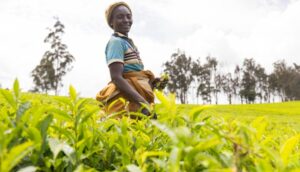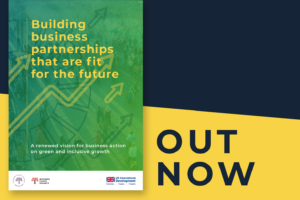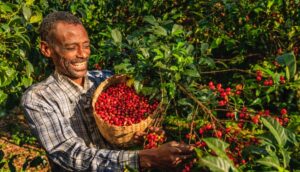A typical smallholder mango farmer in India earns between just $4 and $16 per day. One of the reasons is that they have trouble accessing stable, profitable markets for their crops. Meanwhile, international corporations, like The Coca-Cola Company (TCCC), view smallholder sourcing as an important part of their long-term goals; beyond its potential to generate significant social impact, improved smallholder sourcing also benefits Coca-Cola’s license to operate and provides greater stability in supply.
But how can companies provide stable markets to smallholder farmers while also helping these farmers to adopt sustainable agricultural practices? With support from the Ford Foundation, The Coca-Cola Company and TechnoServe worked together to develop a strategy for sustainable sourcing from smallholder farmers based on TCCC’s mango supply chain in India, with potential implications for a range of crops and regions.
Challenges for sustainable sourcing from smallholders
The Coca-Cola Company’s Sustainable Agriculture Guiding Principles (SAGPs) are central to its sustainability commitments. They promote acceptable labor practices, environmentally friendly farming techniques, and tools for improved farmer livelihoods and incomes, and are benchmarked against several internationally accepted sustainable agriculture standards. When working with larger, traditional suppliers, the company has been quite successful in promoting the adoption of sustainable practices.
However, several complications exist when working with smallholder fruit farmers. First, the supply chain is fragmented, with limited farmer participation in cooperatives and other formal structures that would make it easier to promote the principles. Second, the supply chain lacks traceability and transparency. Finally, the existence of numerous sales channels, such as the fresh fruit market, means that processors have limited influence over farmers.
Promoting sustainability among smallholder mango farmers
To address this challenge, TechnoServe, TCCC and one of its lead mango puree suppliers in India identified gaps in sustainable production practices among Indian smallholder mango farmers. TCCC and TechnoServe then developed an approach to promoting practices that would close those gaps and improve farmer resiliency.
First, the partners designed a farmer field school curriculum focused on the safe and optimal application of crop protection, efficient water management, sustainable soil management, crop maintenance, harvest and post-harvest handling practices, and proper record-keeping. They also designed an approach to improve traceability by formalizing existing, informal aggregation roles in the supply chain. Finally, to track the performance of this approach, a random sampling of farmers in the sourcing geography would be used to track the adoption of sustainable practices.
Sustainability in vulnerable settings
The Coca-Cola Company and its India mango puree supplier involved in the solution design are working with farmers to close the identified gaps in 2017. However, the process of developing the strategy has already yielded important lessons that are applicable to other supply chains and in other regions.
Companies must be aware of the numerous risks—including financial and climate-related factors—that smallholder farmers face. As a result, priority should be placed on promoting practices that reduce farmer vulnerabilities. It may not be effective to promote a full suite of sustainability practices with smallholder farmers, at least not all at once. Additionally, efforts to promote sustainable practices cannot be carried out in isolation: they must be coupled with initiatives to reduce external risk factors—such as climate change and demand volatility—that threaten farmer livelihoods.
By approaching smallholder sourcing in this way, companies can comply with their sustainability guidelines while also creating stable market opportunities for farmers who would not otherwise have them. The full case study is available here.











One Response
This is all very inspiring. What is now needed is (scientific) evidence of impact. As a PhD student focusing on economic organization (including contract farming), I would be interested to take this as a case study for which I can develop several research questions. I will fund my research activity. Ben and Samantha, could this be a possibility? How can I follow up?